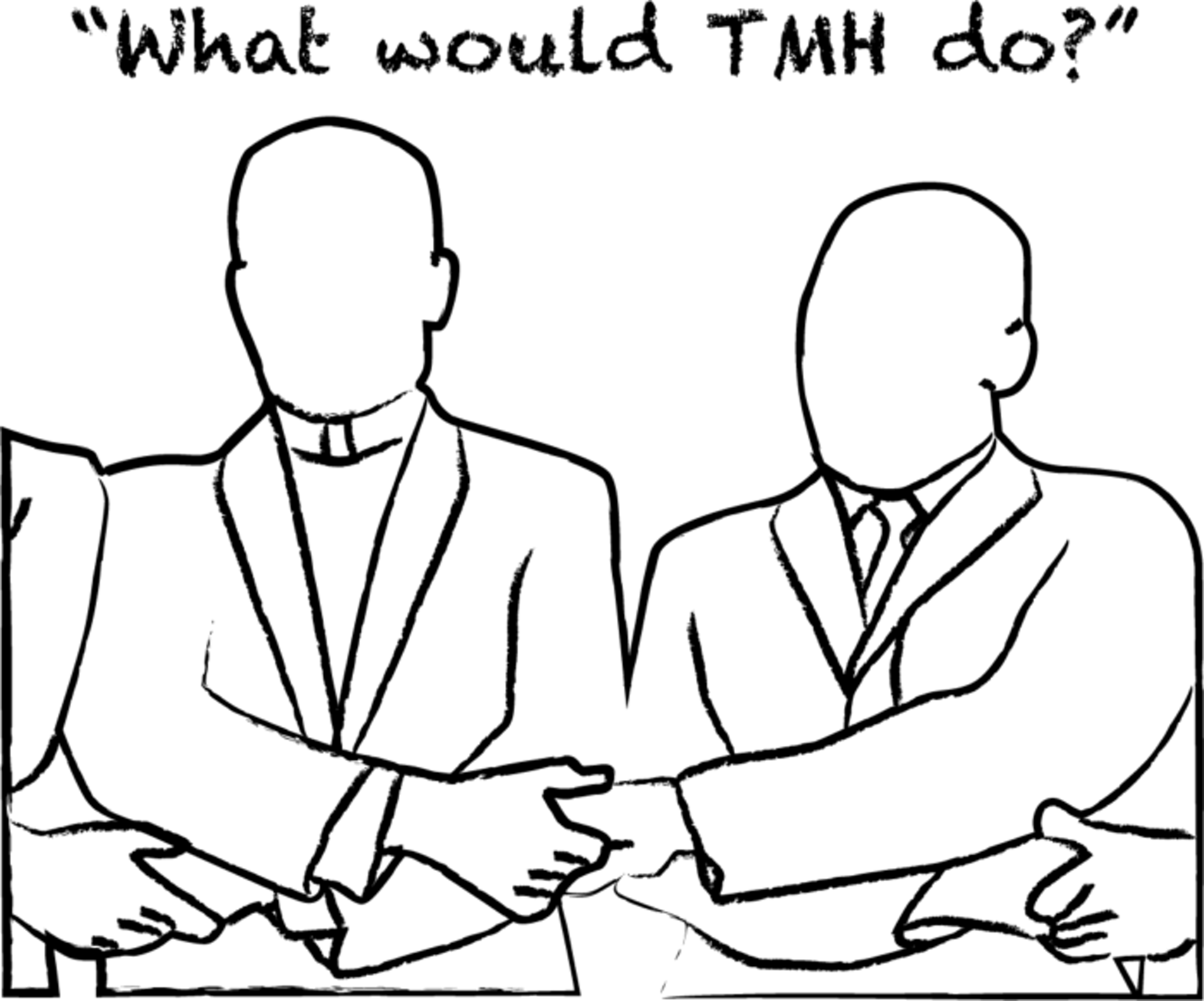
My return to campus as a Fellow in the Inspired Leadership Initiative (ILI) allows me to reflect and reexamine, not only thoughts about ND, but my own growth and experience. In today’s episode of my column, I will revisit racism and ultimately, anti-racism.
For many years, and with deep appreciation, I took pride in Fr. Hesburgh’s leadership and service on the Civil Rights Commission. When one considers that the Commission began working in the late 1950s, it really seems like a bold effort, and one that likely would take Theodore M. Hesburgh (TMH) away from campus a fair amount. (Keep in mind that he had only been named President of the University in 1952. He was appointed to the Commission at its inception in 1957 and served as Chair from 1969 to 1972 when he resigned in protest over Nixon’s obstructionism.) A product of the Hesburgh era at Notre Dame, I am familiar with this story: prejudice was strong, overt and present in all aspects of life. Even the Commission was not unaffected – Hesburgh had to seek assistance from President Eisenhower when U.S. military bases refused to provide housing for members because some were Black. We know that Richard Nixon took issue with Hesburgh’s demands that the Civil Rights Act be enforced in U.S. government hiring. After the deaths of John Kennedy and brother Bobby, we applaud President Lyndon B. Johnson who signed the landmark “Civil Rights Act” into law addressing all the major tenants recommended by the Commission: banning discrimination based on race, color, religion, sex and national origin and addressing voting rights, public accommodations, desegregation of public facilities and education, equal employment and nondiscrimination.
My own experience in racial advocacy came during my undergraduate studies here. I channeled my growing sense of right and wrong into learning about apartheid in South Africa. Working with a fellow senior, we examined the University’s policies, especially the investment of the University’s endowment. The thinking at the time was that activism and disinvestment in South Africa would help to bring about a non-violent end to the African apartheid state. We dug into the topic, meeting with the chief investment leader (a Catholic priest) and the Chair of the Trustee’s Investment committee. Many thanks to Fr. David Burrell CSC for being our academic advisor for this work. More thanks to Nelson Mandela who proved that one person could be more consequential than anyone might have thought. In 2020, I learned of a new campus seminar, Professor Dory Mitros Durham’s “Building an Anti-Racist Vocabulary.” It would be conducted virtually and offered to students, faculty, staff and alumni weekly. Durham modeled it on Ibram X. Kendi’s book of the same title. Working from home in Chicago, and conducted over the noon hour, it fit my schedule and interest. I enrolled and quickly was hooked. I should note that Durham piqued my interest both with her guests – the experts whom she hosted each Friday – and her skill as an interviewer. Her “lead-off” experts each semester were of a sort: ND and religious leaders and friends who told a story. In the fall we began with now Cardinal Wilton Gregory; Nikole Hannah-Jones, ’98; and James Goodwin, ’61, publisher of the Tulsa African-American newspaper and student of the Tulsa Race Massacre of 1921. And in the spring, Rev. Bryan Massingale welcomed us back from ND’s extended break. On the one hand, the material we studied leaves no room to deny the policy, legislative and cultural antecedents of structural racism in the US, notably strongest in the last 100 years or so since Reconstruction. Racism is present in housing, access to capital, voting suppression, health and health care and myriad other venues. I encourage all to watch the collection of videos contained on the course website. Each expert also provided three resources for further study including books and other writings, podcasts and the occasional video. Not only was I hooked, but I was profoundly convinced. Ours is a racist society and we are called to action to end that racism and its roots, practices and enablers.
Along the way, I began a regular correspondence with Durham who cautioned me about “American Exceptionalism” when I harkened back to Hesburgh’s leadership. She gave me pause. Was I being naïve or star-stuck by Hesburgh? Then, as I do now, I think not. We, as students and scholars, are called to learning. We must continue our journey of self-improvement. In fact, is that not why I have embarked on the ILI program? Knowing Hesburgh and his constant struggle for learning, I feel confident that were he with us today, he too would challenge us to be our better selves and not complacent in our past.
Mary Ellen Woods is a graduate of the Notre Dame class of 1980. She has returned to campus as a Fellow in the Inspired Leadership Initiative (ILI). As an undergraduate, she lived in Breen-Phillips and now lives off campus. Her columns appear every other Thursday. A longtime resident of Chicago, she can be reached at mewoods80@nd.eduor @MEWsmuses on Twitter.













